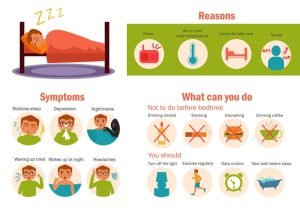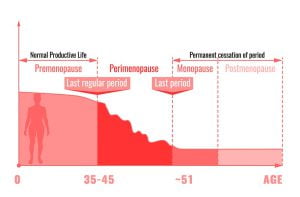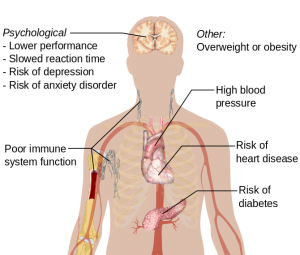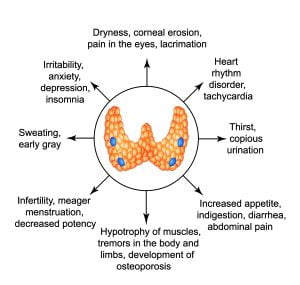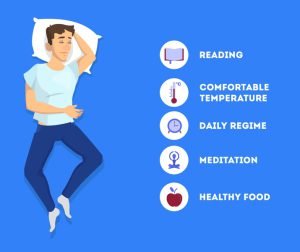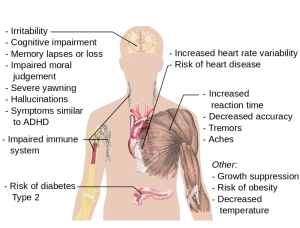Browsing: Insomnia Graphics
Comprehensive Information, Resources, and Support on Insomnia
More than 40 million people say that they have symptoms of either chronic or acute or both types of insomnia. These people are not able to fall asleep or stay asleep in the night. The image shows common signs of the problem and what you can do to manage the condition.
Lack of proper sleep can cause tiredness, morning headaches, poor memory, problems in focusing, anxiety, health problems such as obesity, diabetes and cardiovascular disease, chances of accidents or mishap, etc. Insomnia is the lack of proper sleep and occurs due to psychological issues, hormonal imbalance, several medical conditions, etc. It can be prevented with the help of some changes in lifestyle, such as meditating or exercising daily, good sleeping posture, cutting down on caffeine and tobacco, etc. Good posture while sleeping helps to prevent insomnia as it reduces the chances of acquiring any pain in the body, cramping or impair circulation. Sleeping on back reduces lower back pain, if shoulder pain persists, one should lie on his side, sleeping on stomach can create stress on the back, etc.
The 3-5 year period before menopause when your estrogen and hormone levels begin to reduce is called perimenopause. You generally enter into perimenopause in your late 40’s and may begin to experience irregular menstrual cycles and symptoms. These symptoms may cause sleep disturbances, insomnia etc.
Insomnia can affect your health in many ways. For example, insomnia may raise your risk of developing certain health conditions, such as diabetes, obesity, heart problems. It is twice as common in women as in men and affects about 6% to 10% of adults. (Image author: Mikael Häggström)
An overactive thyroid gland (hyperthyroidism) is one of the main causes of sleep problems these days as many people suffer with thyroid problems. The disorder overstimulates the nervous system, making it hard to fall asleep and cause insomnia, and it may cause night sweats, leading to nighttime arousals. Feeling cold and sleepy is a hallmark of an underactive thyroid (hypothyroidism).
Sleep is essential for a healthy body. Getting regular and good quality sleep is necessary for proper functioning of brain, emotional wellbeing, good physical health, improved daytime performance and for personal safety. Adequate sleep for adults is supposed to be least 7 to 8 hours each night. Sleep disorder, commonly known as Insomnia, is an ability to fall asleep. During insomnia, people face difficulty in falling or staying asleep. Insomnia can lead to fatigue, irritability, etc. To prevent insomnia or to induce a good sleep, one is advised to read before sleep, to sleep in comfortable room temperature, meditate daily, etc.
Loss of sleep or sleep deprivation is a common problem in current society. Symptoms of lack of sleep include feeling drowsy during the day, routinely falling asleep within only 5 minutes of lying down, experiencing sleep naps or “micro-sleeps”, irritability, forgetfulness, etc. Some common effects of sleep deprivation are mood changes i.e. a person can become short tempered, depressed, emotional, etc. Immunity also weakens and the body easily catches infections such as common cold or flu, elevated risk of diabetes, increased blood pressure and heart disease, weight gain, hallucinations, memory loss, drowsiness, low sex drive, etc.
ADVERTISEMENT




